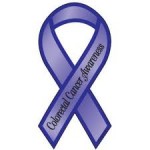 Coffee has been widely linked to an array of health benefits including: decreased occurrences of type-2 diabetes; lower risks of Parkinson’s disease; lower risk of colorectal cancer; lower mortality rates; decreased skin cancer risk; and decreased rates of heart failure. Some studies have deemed coffee unhealthy, but according to others, this claim proves inconsistent and improvable. There are disadvantages to drinking coffee such as irritability and insomnia, but in general, coffee proves beneficial. In honor of National Coffee Month, pour yourself a cup or two and reap the following benefits.
Coffee has been widely linked to an array of health benefits including: decreased occurrences of type-2 diabetes; lower risks of Parkinson’s disease; lower risk of colorectal cancer; lower mortality rates; decreased skin cancer risk; and decreased rates of heart failure. Some studies have deemed coffee unhealthy, but according to others, this claim proves inconsistent and improvable. There are disadvantages to drinking coffee such as irritability and insomnia, but in general, coffee proves beneficial. In honor of National Coffee Month, pour yourself a cup or two and reap the following benefits.
A study in the journal Food Science and Nutrition cited coffee as being associated with a reduced the incidence of both metabolic syndrome and diabetes mellitus. Researchers believe this is due to coffee’s antioxidants and its ability to enhance insulin sensitivity, which results in decreased glucose storage. Specifically, caffeine affects glucose metabolism through increased uncoupling protein expression and lipid oxidation. This causes decreased glucose storage as well, thus reducing the extent of diabetes mellitus. The same study also attributed coffee to lowering the risk of Parkinson’s disease. Researchers theorize that this lower risk may be due to antioxidants acting on neural pathways that affect one's risk for Parkinson's. However, the study also said that water intake must be included to reap these benefits.
Additional research reveals that coffee may lower the risk for many other conditions. Certain acids and fiber in coffee may protect against colorectal cancer and skin cancer (specifically basil cell carcinoma), and coffee consumption may also decrease the risk for developing heart failure by 11% (compared to the risk for non-coffee drinkers), but that this decreased risk comes with a two eight-ounce cup limit, with protective benefits undermined after 4 cups.
Drinking coffee does not mean that you will not suffer from the aforementioned conditions; researchers show that it only lowers one’s chances. There are many other factors to consider such as lifestyle, environment, and genetics. Coffee should not be used solely as a preventive measure, nor should it be considered a reliable treatment for any condition. Additionally, results of the myriad coffee studies are conflicting as far as how much is too much or how little is too little to reap the most benefits. Continued study is required to determine the ideal amount and to understand the mechanisms behind any benefits.
In the meantime, enjoy the 'jo. Cheers to good health.
Sources:

 Colorectal cancer screening saves lives. If everyone aged 50 years old or older were screened regularly, as many as 60% of deaths from this cancer could be avoided. Among cancers that affect both men and women, colorectal cancer—cancer of the colon or rectum—is the second leading cause of cancer-related deaths in the United States. Colorectal cancer also is one of the most commonly diagnosed cancers in the United States.
Colorectal cancer screening saves lives. If everyone aged 50 years old or older were screened regularly, as many as 60% of deaths from this cancer could be avoided. Among cancers that affect both men and women, colorectal cancer—cancer of the colon or rectum—is the second leading cause of cancer-related deaths in the United States. Colorectal cancer also is one of the most commonly diagnosed cancers in the United States.